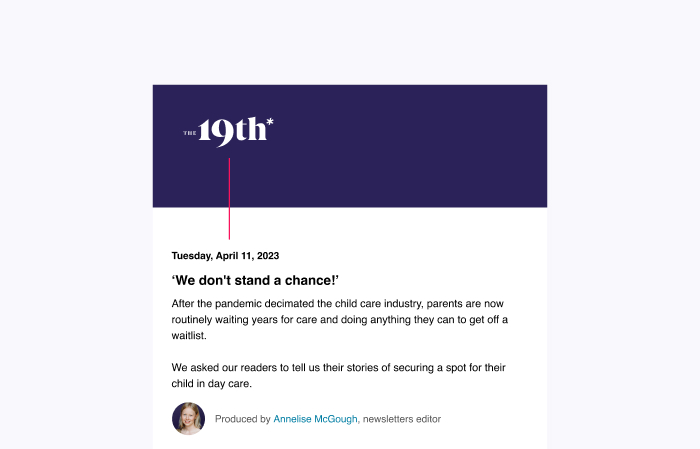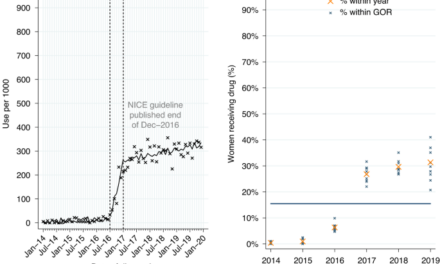At The 19th, we’re committed to publishing journalism that you can trust throughout the critical moments that shape our democracy and our lives. Show your support during our Fall Member Drive, and your donation will be matched. Double your gift today.
Democrats in Congress, students, and LGBTQ+ advocacy groups are growing frustrated with the Biden administration’s slow pace to finalize proposed updates to Title IX, the federal civil rights law prohibiting sex discrimination in schools. More than 60 House Democrats sent a recent letter to Secretary of Education Miguel Cardona, calling on the agency to act.
Under the policy changes proposed by the Biden administration in April, blanket anti-trans sports bans in schools would violate Title IX, with a few exceptions. The federal law would still allow for competitive high school and college sports to restrict trans students’ participation if those schools minimize harm to students and follow other guidelines set out by the agency.
The Biden administration’s separate proposal to strengthen protections for student sexual assault survivors, as well as for LGBTQ+ students more broadly, has also not been finalized. That proposal was made last summer. On Tuesday, students — gathered by groups including the Human Rights Campaign and the National Women’s Law Center — will rally at Lafayette Square in front of the White House to urge the Biden administration to finalize new Title IX protections.
In their letter, House Democrats express concern over the delay and point out that the department had previously forecast that both of the new rules would be finalized in October, accounting for a massive influx of public comments.
Rep. Mark Takano of California, co-chair of the Congressional Equality Caucus, said in a press call on November 30 that parents should know their LGBTQ+ children will be protected at school — especially in the current political climate.
“To this day, LGBTQ+ Americans do not have anti-discrimination protections at the federal level. I often say that your civil rights as a queer person depends on your zip code,” Takano said. “And right now, extremists in state governments and in Congress are creating false moral panic about trans kids, and they’re politicizing the existence of transgender children, period.”
The Education Department has received this new letter and will review it, an agency spokesperson said over email. The agency said this spring that it received more than 240,000 public comments on its Title IX rule proposed last year, which would expand protections to sexual assault survivors at school and LGBTQ+ students, plus 150,000 comments on its separate proposal to protect trans students’ sports access.
Twenty-three states have banned transgender students from joining sports consistent with their gender identity, per the Movement Advancement Project, which tracks LGBTQ+ policy. Temporary court injunctions have blocked enforcement of anti-trans school sports bans in Arizona, Idaho, West Virginia and Utah, although those legal cases are still active.

(John Lamparski/AP)
The Human Rights Campaign, the largest LGBTQ+ rights organization in the country, as well as the National Women’s Law Center have also called for the Biden administration to act. Staff members of both groups joined the Democratic Women’s Caucus and the Congressional Equality Caucus to discuss the letter sent to Cardona on November 30.
“Both of our organizations have advocated not only publicly, but privately as well, for this rule to be finalized expeditiously,” said Human Rights Campaign legal director Sarah Warbelow. Although the groups appreciate the care that the agency is taking to read public comments and comply with federal regulations, there is a critical need for the rules to be finalized soon, she said.
Student survivors of sexual harassment and assault also need the Biden administration to finalize their proposed Title IX changes, said Shiwali Patel, director of justice for student survivors and senior counsel for the National Women’s Law Center.
Sexual violence in schools continues to be an epidemic, Patel said. At least 20 to 25 percent of undergraduate women experience sexual assault, she said — a percentage that lines up with data from a 2020 study by the Association of American Universities — and disabled students, queer students and students of color are especially vulnerable.
The proposed, and not yet finalized, Title IX changes would protect these students and reverse harmful policies put in place under former President Donald Trump, she said. Those rules, established by former Education Secretary Betsy DeVos, have led to schools ignoring more incidents of sexual harassment and fewer survivors reporting their experiences or participating in investigations, Patel said.
“So for the last three years, and now fourth school year, student survivors have fewer rights,” she said. “Now it’s getting close to 2024 and we don’t know when a final rule will come out. So students are frustrated, and we’re frustrated as advocates.”
Ryan Hafener will be one of the students standing outside of the White House on Tuesday. As a 17-year-old attending public high school in Maine, and an intern for the Maine House Democratic Campaign Committee, he wants explicit protections for LGBTQ+ students to be federal law.
Although Maine has many protective laws in place for LGBTQ+ people, including nondiscrimination and anti-bullying laws for students, federal protections would still directly benefit him, Hafener said.
“I am from a rural area and like so many other students in rural areas, I’ve seen my share of ignorance, homophobia, negative perceptions and comments about LGBTQ+ students,” he said.
For other LGBTQ+ students who do not have state laws in their favor, the renewed Title IX protections would have an even greater impact, Hafener said.






